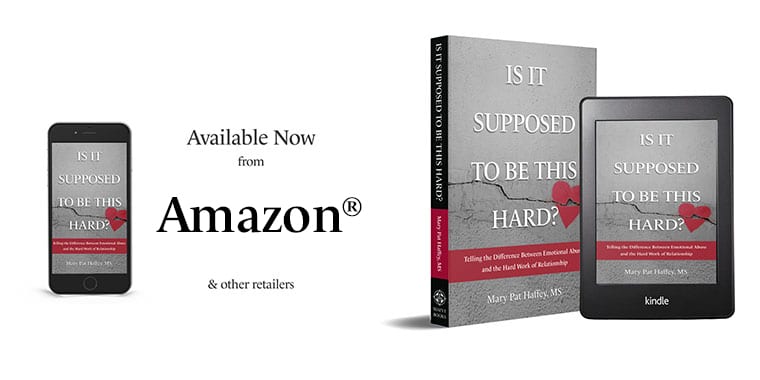I can’t believe I was such an idiot. It took me a long time to forgive myself for allowing that to happen.
—Paige
A friend I’d known for years told me about a couple of people she knew who had similar things happen to them. One of them is quite famous as a healer. She said, “It can happen to anyone. It is not just you.”
—Porchia
I wish I forgave myself earlier and learned to love myself earlier, because that would have helped. Working on my self-worth was vital.
—Alice
Do you know that people typically judge themselves harshly when they realize they’ve been in an abusive relationship, just as Paige did? And like Porchia, their shame is reduced when they learn that they are not alone, that even prominent, successful people can be abused? Does Alice’s discovery that self-forgiveness is a vital part of healing from abuse surprise you?
Judith Herman (1992), a widely renowned expert in the field of trauma, explains the importance of addressing shame and judgments in the process of recovering from abuse: “A frank exploration of the traumatized person’s weaknesses and mistakes can be undertaken only in an environment that protects against shaming and harsh judgment. Otherwise, it becomes simply another exercise in blaming the victim” (199).
Negative judgments diminish self-worth, and low self-worth interferes with the healing process. When abused partners begin therapy, get into a support group, or otherwise communicate with people who understand emotional abuse, they find that they are not alone. They discover that there are many similarities in the circumstances that make people vulnerable to abuse, in their reactions to the abuse, and in the ways they come to terms with the abuse after they realize it has happened. With increased understanding, abused partners judge themselves less and respect themselves more, clearing the way for them to develop the confidence and strength they need to begin the healing process.
UNDERSTANDING JUDGMENT IN ABUSE
Judgments are pervasive in abuse. Abused partners are judged by the abuser, by people outside the relationship, and by themselves. Often, the most severe self-judgment comes when they realize they have been in an abusive partnership. Vincent’s reaction is typical:
Once I realized what was going on through therapy, I thought, “I must be the dumbest man ever. I must be the stupidest idiot in the world to go along with this for so long. I wasted so many years of my life.”
For some people, the realization is more gradual, and the judgment is marked by the confusion that so often accompanies emotional abuse. For instance, it is not unusual to hear, “I can’t believe I was so stupid,” within a few sentences of, “Maybe I’m making a mountain out of a molehill.”
In addition, people sometimes swing between judging themselves for staying and then judging themselves for wanting to leave:
There was judgment about wanting to leave. Why is it I want to abandon somebody? Why do I want to quit my partner?
—Abigail
Many abused partners also feel, or expect to feel, judged by people outside the relationship, so there is a sense of shame about letting others know what is happening:
I didn’t see it for what it was, and then when I did, I thought, “Who do I tell? They are going to say, ‘Why did you stay? If you see it now, why didn’t you see it then?’”
—Denise
That fear is not entirely unfounded. The subtlety and duplicity that confuses abused partners can also deceive others. And the unfortunate truth is that abused people are often judged no matter what they do. They are judged for trying too hard, for not trying hard enough, for not seeing it sooner, for complaining about what they do see, for accepting the abuse, for confronting the abuser, for staying, for leaving, for forgiving, or for not forgiving:
The same people who defended my partner and judged me for complaining about my relationship were also the ones who judged me the most for staying once they got what was really going on.
—Terri
Even though it can feel scary to reach out, the healing effects of support from understanding others make it worth the risk. Most abused people who get into therapy have found that it is a life-changing experience. For people who can’t find help in their immediate community, the National Domestic Violence Hotline is a good place to find non-judgmental support. And, yes, emotional abuse is a type of domestic violence.
